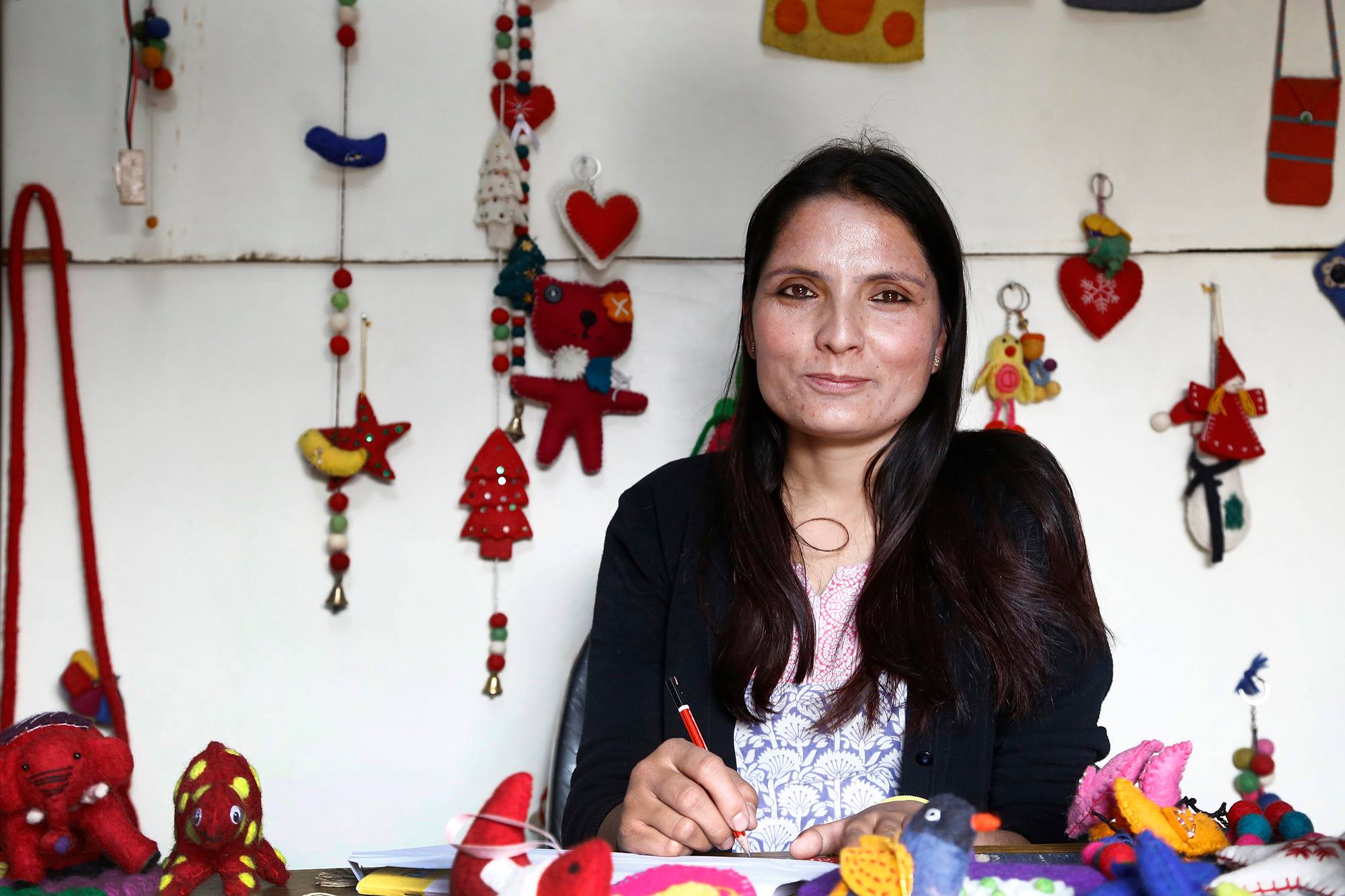Sangita Pant

Sangita Pant, is the founder and director of Entire Power in Social Action Nepal (EPSA), an NGO providing employment, housing, vocational skills, and education to persons with disabilities Kathmandu. Since its founding in 2009, EPSA has provided life-changing services to over 5000 people marginalized by society. Her journey in founding EPSA is a powerful story of overcoming adversity, breaking societal barriers, and fostering economic empowerment.
Born in Palungtar 6 in the Gorkha district of rural Nepal, Sangita was the only daughter in a family of four boys. At the age of seven, while playing with her friends and brothers, Sangita tripped and injured her left shoulder. Carried by a neighbor, Sangita trekked one full day to the nearest health post where her arm was incorrectly set into a cast—causing her left arm to become paralyzed. From this point onward, Sangita was subject of mockery and pity by people in her village, who told her she had no future. Despite this discouragement, Sangita passed secondary school in the first division. She then persuaded her brothers to let her study in Kathmandu, where she completed her bachelor’s in management and later a masters in sociology.
In Nepal, disabilities are often seen as a sign of bad deeds in a past life, leading to deep-seated social stigma. The inability to earn an income further compounds this stigma, as disabled persons are perceived as unable to provide any value to society. Sangita faced this discrimination firsthand in her first job as a teacher. After teaching for nearly three weeks, the school administration noticed that she did not use her left arm. They informed her that parents would likely withdraw their children if they learned they were being taught by a disabled person. Consequently, they asked her to leave and did not pay her for the days she had worked. This incident was a blow to Sangita’s confidence, leaving her depressed and affecting her studies.
Sangita’s journey took a transformative turn in 2008 when she received a scholarship from the Japanese development agency JICA to study in Tokyo. There, she witnessed how inclusive societies can empower individuals with disabilities through opportunities and training. Inspired by these experiences, she returned to Nepal to replicate Japan’s model of empowerment in her home country.
Driven by her own disability and a vision for the future, Sangita established EPSA in September 2009. The organization was born out of a deep-seated commitment to improve the living conditions of people with disabilities, especially women, in a country where traditional conservative culture and a male-dominated society often marginalize them. With limited access to education, employment, and awareness, people with disabilities in Nepal face dual discrimination—first for being poor and second for their disabilities. By enabling people with disabilities to generate income and seek employment, Sangita aimed to alleviate the compounded effects of poverty and disability experienced by people like herself.
Sangita’s efforts have not been without obstacles. Renting property in Kathmandu proved difficult as landlords doubted a disabled person’s ability to pay rent. Undeterred, Sangita saved diligently and purchased land on the outskirts of Kathmandu, where EPSA’s headquarters now stand. At any given time, this center provides full-time work and training opportunities for 85 people with disabilities, offering them a chance to lead dignified lives. EPSA’s mission extends beyond vocational training. The organization provides housing for approximately 35 disabled women who are often abandoned by their families and cannot find landlords who will rent to them. Additionally, EPSA is providing 25 families with secondary and higher education through scholarships, ensuring that educational opportunities are accessible to those in need. Starting with five women producing candles, EPSA has impacted over five-thousand individuals and produces handmade carpets, felt items, knitwear, and handbags.
EPSA has gained recognition as one of the leading NGOs in Nepal, securing funding and support from national and international organizations. During Nepal’s 2015 earthquake and COVID-19 pandemic, Sangita’s dedication was acknowledged with an award from the Ram Babu Service Centre Nepal. In 2017, EPSA was recognized by ZeroProject in Vienna, Austria.
Sangita Pant’s story is one of unwavering commitment to social justice and empowerment. Through EPSA-Nepal, she demonstrates that empathy, action, and perseverance can create a more inclusive and compassionate world. She believes that, when given opportunities, people with disabilities can achieve their full potential and pass on their experience to others like them.
